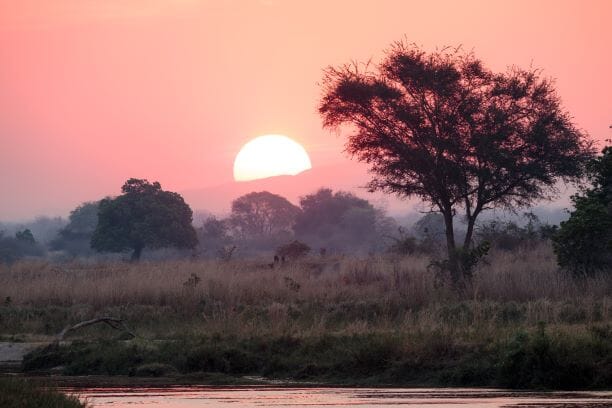You’re in for a heartwarming viewing of what climate finance means to the communities who need it the most.
Senior Chief Luembe, Patron of the Luangwa Community Forests Project, who appears in the documentary, says: “Protecting the world’s forests is crucial for addressing the global climate crisis, but preventing deforestation is an especially difficult challenge in Africa, where forests are also a critical source of income for our local communities, and for biodiversity which rely on forests for their existence. The Luangwa Community Forests Project shows that there are solutions that are yielding significant positive results, not only for the environment and biodiversity but also for our communities.
“One of the fundamental reasons for the success of the LCFP is that revenue generated from the sale of carbon credits is owned, implemented, and managed by the communities who receive it. Our communities decide on the priority interventions required in our areas, and how the money should be allocated. Our priorities include improved access to education, infrastructure development, clean drinking water and support for local economic activities.
“To date, the project has protected over 565 million trees, and ensured that sustainable conservation and preservation has been imprinted into the hearts and minds of our communities. This has been done by developing initiatives that offer communities alternatives and viable income revenues that do not involve damage to trees and biodiversity.”
Chieftainess Msoro, Linda Wanga Saili, who appears in the documentary says: “We should all want to save our forests for the sake of our livelihoods. I want to see a situation where people will buy in totally, and when they see someone cutting down trees, or building a structure in a protected area, they will rise up and say no, don’t do that, because you are destroying our livelihoods and our assets.
Behavior change is sometimes very slow and painful, but you begin to realise that over the years we have had areas where people have got the message, that we need to preserve our forests. Communities realise that these are our assets, and should be protected by ourselves. It’s not because the Chiefs, the Department of National Parks and Wildlife, or the Forest Department said so, but because these are our forests and our future. These forests belong to us, and to our children’s children. If we can put our heads together and do the right thing, we are moving in the right direction.” Background to the documentary:
Background to the documentary:
Protecting the world’s forests is crucial for addressing the climate crisis. Forests absorb vast amounts of carbon dioxide and can be a source of greenhouse gas emissions when destroyed or damaged. Over 1.6 billion people depend directly on forests for food, shelter, energy, medicines, and income. But the world is losing 10 million hectares of forests each year, which has devastating consequences for the planet and climate change, as well as for the communities and biodiversity that rely on forests for their livelihoods and existence.
Zambia is one of Africa’s most forested countries, however, it is losing forests about 163,000 hectares annually, equal to losing 402,610 soccer fields every year. In 2008, to address deforestation, countries established the ‘REDD+’ framework to protect forests as part of the Paris Agreement, under the United Nations Framework Convention on Climate Change (UNFCCC). REDD+, stands for reducing emissions from deforestation and forest degradation and fostering conservation, sustainable management of forests, and enhancement of forest carbon stocks.
The Luangwa Community Forests Project is the largest REDD+ project in Africa by hectares and the largest in the world by quantified social impact. The project partners with 17 Chiefdoms across 1.2 million hectares. The Luangwa Lower Zambezi Ecosystem is one the greatest wildlife strongholds remaining on earth; home to African wild dogs, elephants, leopards, and lions.
It is implemented by BioCarbon Partners (BCP), in partnership with Chiefdoms, Royal Establishments, the Zambian Government, NGOs’ and importantly, the communities that reside and depend on these areas.
